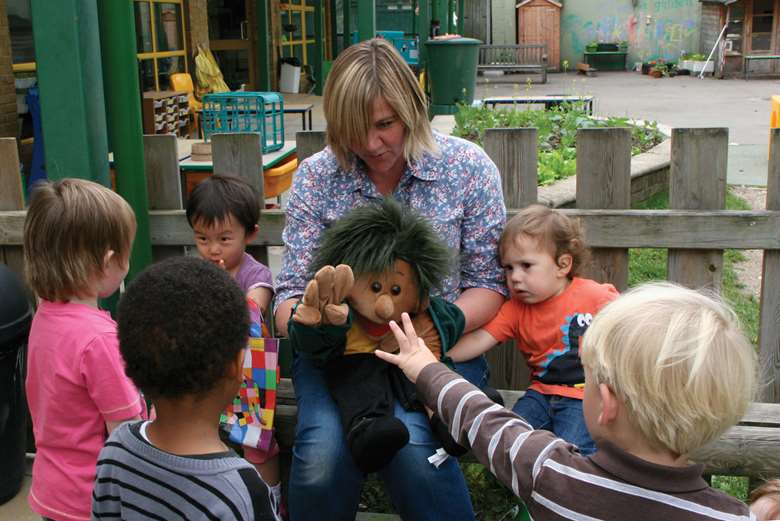Free childcare expansion could disadvantage poorer children, warns think-tank
Jess Brown
Monday, June 20, 2016
Disadvantaged children are most likely to miss out on free childcare when the 30-hour expansion comes into effect, experts have warned.

A report by think-tank Education Policy Institute and academy network Ark has warned that the 30-hour entitlement, available to three- and four-year-olds from September 2017, will push the poorest families out of childcare.
The current 15 hours of free childcare is available to all parents, but the additional 15 hours will only be available to parents working at least 16 hours per week.
The Early Learning and Childcare report states that this could disproportionally affect disadvantaged children as school-based settings, which are attended by a large proportion of disadvantaged children, cut down the number of part-time places available as demand for the 30 hours grows among working parents.
"The new 30-hour entitlement for working families poses a risk that children from the poorest families will be squeezed out of the settings where they thrive most as schools convert part-time nursery class places to a much smaller number of full-time places, for which disadvantaged children will not qualify," said one the paper's authors, Baroness Sally Morgan, an adviser to Ark and former chair of Ofsted.
The report states that a nursery that takes up to 60 children over one day - 30 children in the morning and 30 in the afternoon, for example - could decide to provide care for only 30 children when the extended entitlement comes in.
The report warns that nurseries in poorer areas are more likely to do this as they are more vulnerable to losing money.
Nurseries may also be more inclined to offer the 30 hours in place of the 15 hours of free childcare for disadvantaged two-year-olds, as they require more staff to care for them and are therefore more expensive.
Ark and the Education Policy Institute have called on government to target more money at providers caring for disadvantaged children, encourage schools in disadvantaged areas to form partnerships with independent childcare providers to help improve quality, encourage schools to extend the reach of their nursery classes, and support strong schools and academy sponsors to deliver flexible, school-linked provision "beyond the school gate".
Natalie Perera, executive director of the Education Policy Institute, said: "The report raises some important questions about the government's approach to early years policy.
"We know that the gap between disadvantaged children and the rest already stands at over four months by the time children are aged five.
"The Education Policy Institute has already expressed concerns similar to those made by the report about the implication of the 30-hour free childcare offer on children from disadvantaged backgrounds. We hope that the government considers these concerns as the policy is implemented."




